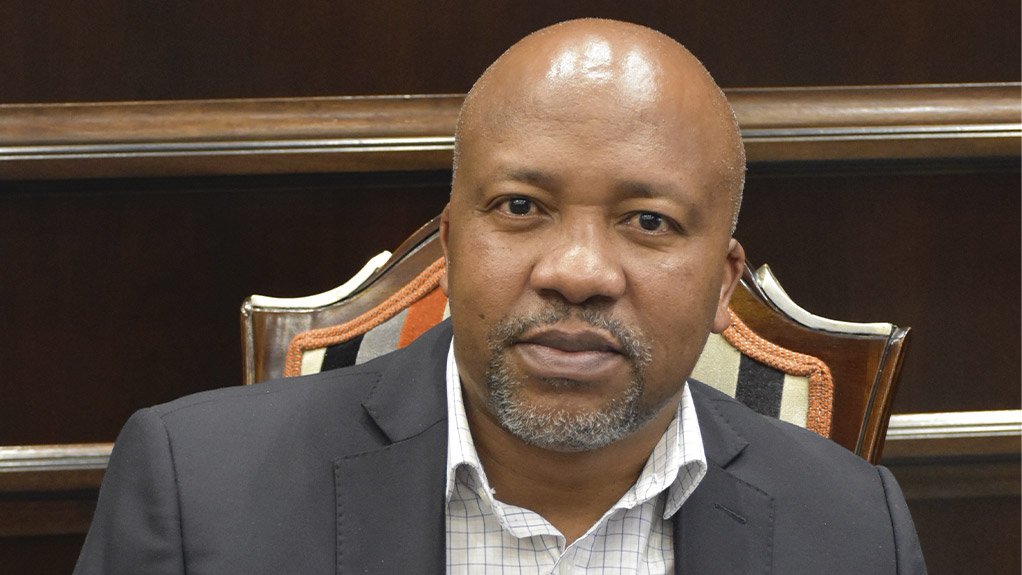Khato’s new joy
Recently, government wrote Khato Civils, pledging to guarantee funding options for the Lilongwe-Salima Water Supply Project being implemented by Lilongwe Water Board. In this interview, our News Analyst LUCKY MKANDAWIRE engages Khato chief executive officer Mongezi Mnyani, to unpack the new development.

What is the progress of the Salima-Lilongwe Water Project?
Since the appointment date, of Khato Civils – South Zambezi Joint venture by the Government of Malawi through the Lilongwe Water Board to implement the Lake Malawi Supply Project, Khato Civils has spent up to $71.2 million (K58.2 billion) so far on the processes required to commence the project. We have ensured that we meet all conditions precedent to the contract and, indeed, all these have been met without exception.
Having met all these conditions prior to the execution of the contract, we expected the government to meet its obligations without fail. Various ministries were engaged and all indications pointed to that the project must be executed in line with the plans submitted to Lilongwe Water Board. Ultimately, the Ministry of Finance gave the go-ahead in August 2020.
What is your reaction to government’s green light for you to negotiate with potential financiers?
We are excited and enthusiastic given that we have been working on this project since January 2017, and we have invested a lot of resources both financial and technical. Khato Civils has a proven track record for service excellence and we are confident that we will execute this project without fail and within the required timeframe.
We are now busy negotiating with potential funders for the project. The funding agreement will have to be signed with the government. Once this is concluded, construction of the pipeline with start.
How long, and how much will the project take?
The project will be done as a one-off phase, estimated to be completed within 24 months.
The contract amount has been affected by the depreciation of the kwacha, but we have to develop other measures and strategies to ensure that we still deliver the project within the budget as expected. We will be working very close with the government to come up with various initiatives that will assist in curbing the cost, but not compromising on quality.
The original designs as approved by LWB will be utilised. We have based all the project cost and the construction drawings to such designs.
What is the total cost of the project?
It is now at $305.8 million (K250.1 billion). At the request of the Minister of Finance, we have reviewed the project costs to identify areas where savings can be made and the change of pipe material has been identified as one of the areas significant costs can be reduced.
What adjustments have been made so far?
Initially, the piping was made of ductile iron pipes to be imported from Brazil or China. Due to the Covid-19 pandemic, these countries don’t have iron ore and companies manufacturing the pipes have encountered interruptions in their normal production.
In view of this development, we are now going to use mild steel pipes to be manufactured in South Africa. This will result in significant savings in the cost of pipes.
We are currently negotiating with various potential financiers and the Ministry of Finance has issued a formal letter confirming that they will issue the guarantee for the loan agreement once we finalise negotiations with the financier.
How committed are you to realise the project?
The equipment that has been in Malawi since 2017 is wholly owned by Khato Civils and was specifically procured for the project.
We are committed to this project and we have dedicated a lot time and resources. The feasibility study, environmental and social impact assessments as well as the detailed designs for the project have been completed, and approved by relevant authorities in the country.
The project should now progress into construction upon the signing and conclusion of funding or loan agreement between financiers and the government. Since our date of appointment, we have met all the conditions precedent as stated in the contract. What is outstanding is the signing of the funding or loan agreement so that the project can start immediately.
How will Malawians along the pipeline benefit from this project?
In the course of construction, Khato Civils will ensure that job creation becomes the big benefit for communities along the pipeline. This will be followed by skills-transfer to empower people to continue working elsewhere after the project is completed.
Khato Civils wishes to assure Malawians that they will be proud of the quality of construction works, which is the last section of the project. They will be proud to have a project of international standards delivered by a company owned by one of their sons of the land.
Any parting shot?
We are determined to serve the people of Malawi and we will strive to deliver what people need. Water is definitely required from a reliable source in the City of Lilongwe and the surrounding areas. If you start providing water on residential level, you will uplift residents. If you provide it on an industrial level, you create sustainable jobs.
For Malawi to develop, we should take charge of our destiny as this will remain our country, and to be developed by ourselves. This project is a Malawian project; it is meant to benefit Malawians, our children, grandchildren and great grandchildren for years to come.
We assure all Malawians that Khato Civils will undertake the project to the satisfaction of all stakeholders, and to the benefit of the country.





